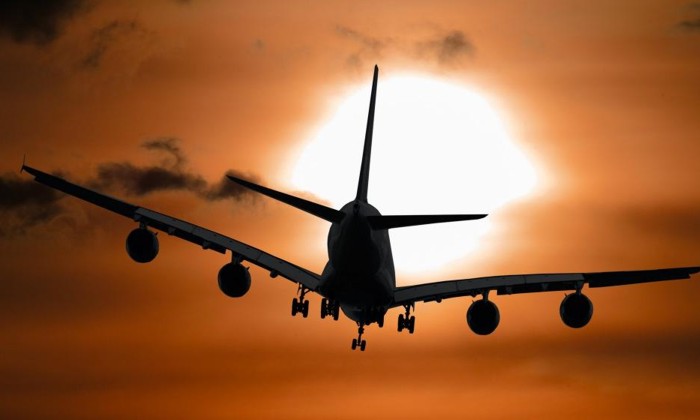Commit to a low carbon culture
22 Jul 2019
We can all make changes to the way we travel to create a low carbon flight culture

Across the University, staff and students alike are working hard to make changes to the way they commute, eat, and work, to reduce their carbon emissions and ultimately help to create a sustainable future. The biggest impact on your carbon footprint – which is within your personal control – is the number of flights you take. As discussed in the Tyndall Travel Strategy, overseas conferences, meetings, and fieldwork mean academic researchers are among the highest emitters of carbon.
A low carbon flight culture
By making small but considered changes we can all establish a low carbon culture around business fights. 10,000 Actions is our University-led environmental sustainability initiative which encourages staff to develop a personal sustainability action plan which can make an impact on tackling the world’s greatest challenges. A number of these actions involve pledging to make the following changes:
Things to consider before you book a business flight…
- Remember that your individual actions really do make a difference – despite the huge challenges global warming presents, committing to making changes is proven to have a ‘domino effect’, positively impacting those around you
- Be selective about the invitations you accept – could a virtual meeting have the same impact? Regularly attending global conferences not only impacts the environment but your health and wellbeing too. How would your relationships, health, stress levels and other work commitments be impacted if you reduced the amount of trips you take?
- Have you already travelled to this destination within the past year? Try to limit trips to once every number of years, not annually
- Reduce domestic and short-haul flights – once the cost and distance required to reach airports are factored in, it may cost the same, and take the same time, to travel by train
- Send one representative to a meeting rather than an entire team – establish initial contact with a face-to-face meeting, then schedule any substitute recurrent meetings with creative tools. Media Services are happy to help research groups conduct seminars and collaborate on projects across sites, as well as broadcasting public lectures
If the flight is essential…
- Fly direct without stopovers – take-off and landing accounts for the majority of the CO2 output produced by a flight
- Combine or extend trips – cover more than one area in one trip rather than flying there again at a later date
- Avoid business class air travel and opt for budget airlines – business class seats take up more space on the plane and therefore have up to three times the carbon footprint of a standard economy seat. Budget airlines are seated more efficiently, and often fly newer, more fuel-efficient planes
Take action
- Read the Tyndall Travel Strategy, and use the flow chart to consider when or if to fly
- Join colleagues across the University in taking part in 10,000 Actions and contribute to a more sustainable society
